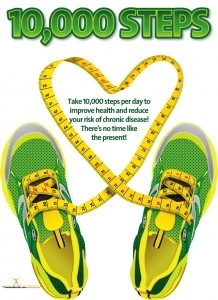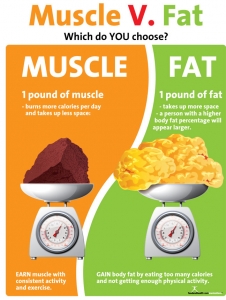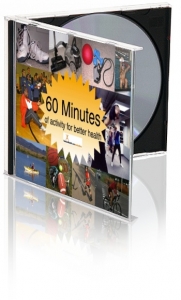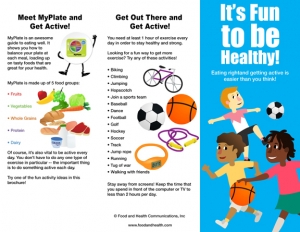Are You Physically Active?
 Are you physically active? Take this quiz and find out!Question #1: Moderate IntensityHow much moderate-intensity exercise do you get in a week?a. Fewer than 150 minutesb. Roughly 150 minutesc. More than 150 minutesQuestion #2: Vigorous IntensityHow much vigorous-intensity exercise do you get in a week?a. Fewer than 75 minutesb. Roughly 75 minutesc. More than 75 minutesQuestion #3: StrengthHow often do you do muscle-strengthening activities each week?a. Fewer than 2 days per weekb. 2 days per weekc. More than 2 days per weekQuestion #4: HealthTrue or false: Regular physical activity provides major health benefits, no matter how weight changes over time.Question #5: Seeking ActivityHow likely are you to seek out physical activity? For example, are you more likely to skip the elevator and take the stairs? Park farther from your destination? Go for a walk at lunch?a. Not likely at allb. Somewhat likelyc. Very likelyQuiz Results and Discussion:If you answered most often with a, then you are not very physically active.If you answered most often with b, then you are physically active.If you answered most often with c, then you are very physically active.The correct answer to #4 is true, so if you got that right, consider yourself savvy.According to the Physical Activity Guidelines for Americans, “For substantial health benefits, adults should do at least 150 minutes […] a week of moderate-intensity, or 75 minutes […] a week of vigorous-intensity aerobic physical activity, or an equivalent combination.”The guidelines also assert “Adults should also do muscle-strengthening activities […] on 2 or more days a week, as these activities provide additional health benefits.”Note that you don’t have to answer b to both question 1 and question 2 in order to consider yourself physically active — doing one or the other or a combination of the two will net you substantial health benefits.So what are these benefits we keep talking about? The Physical Activity Guidelines capture them best, saying that there is strong evidence that regular physical activity offers a lower risk of...
Are you physically active? Take this quiz and find out!Question #1: Moderate IntensityHow much moderate-intensity exercise do you get in a week?a. Fewer than 150 minutesb. Roughly 150 minutesc. More than 150 minutesQuestion #2: Vigorous IntensityHow much vigorous-intensity exercise do you get in a week?a. Fewer than 75 minutesb. Roughly 75 minutesc. More than 75 minutesQuestion #3: StrengthHow often do you do muscle-strengthening activities each week?a. Fewer than 2 days per weekb. 2 days per weekc. More than 2 days per weekQuestion #4: HealthTrue or false: Regular physical activity provides major health benefits, no matter how weight changes over time.Question #5: Seeking ActivityHow likely are you to seek out physical activity? For example, are you more likely to skip the elevator and take the stairs? Park farther from your destination? Go for a walk at lunch?a. Not likely at allb. Somewhat likelyc. Very likelyQuiz Results and Discussion:If you answered most often with a, then you are not very physically active.If you answered most often with b, then you are physically active.If you answered most often with c, then you are very physically active.The correct answer to #4 is true, so if you got that right, consider yourself savvy.According to the Physical Activity Guidelines for Americans, “For substantial health benefits, adults should do at least 150 minutes […] a week of moderate-intensity, or 75 minutes […] a week of vigorous-intensity aerobic physical activity, or an equivalent combination.”The guidelines also assert “Adults should also do muscle-strengthening activities […] on 2 or more days a week, as these activities provide additional health benefits.”Note that you don’t have to answer b to both question 1 and question 2 in order to consider yourself physically active — doing one or the other or a combination of the two will net you substantial health benefits.So what are these benefits we keep talking about? The Physical Activity Guidelines capture them best, saying that there is strong evidence that regular physical activity offers a lower risk of...
- Adverse blood lipid profile
- Breast Cancer
- Colon cancer
- Coronary heart disease
- Deptression
- Early death
- Falls
- High blood pressure
- Metabolic syndrome
- Stroke
- Type 2 diabetes
- Weight gain
Regular exercise can also lead to better cognitive function for older adults.For More Information:
- Physical Activity Guidelines for Americans: http://www.health.gov/paguidelines/pdf/paguide.pdf
- Summary of Physical Activity Guidelines http://www.health.gov/paguidelines/guidelines/summary.aspx
Like the quiz? Share it with your friends!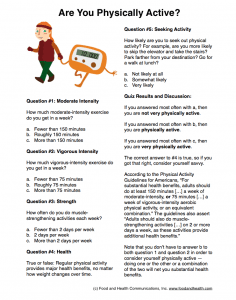 There are lots of ways to promote regular physical activity! Check out these materials...
There are lots of ways to promote regular physical activity! Check out these materials...